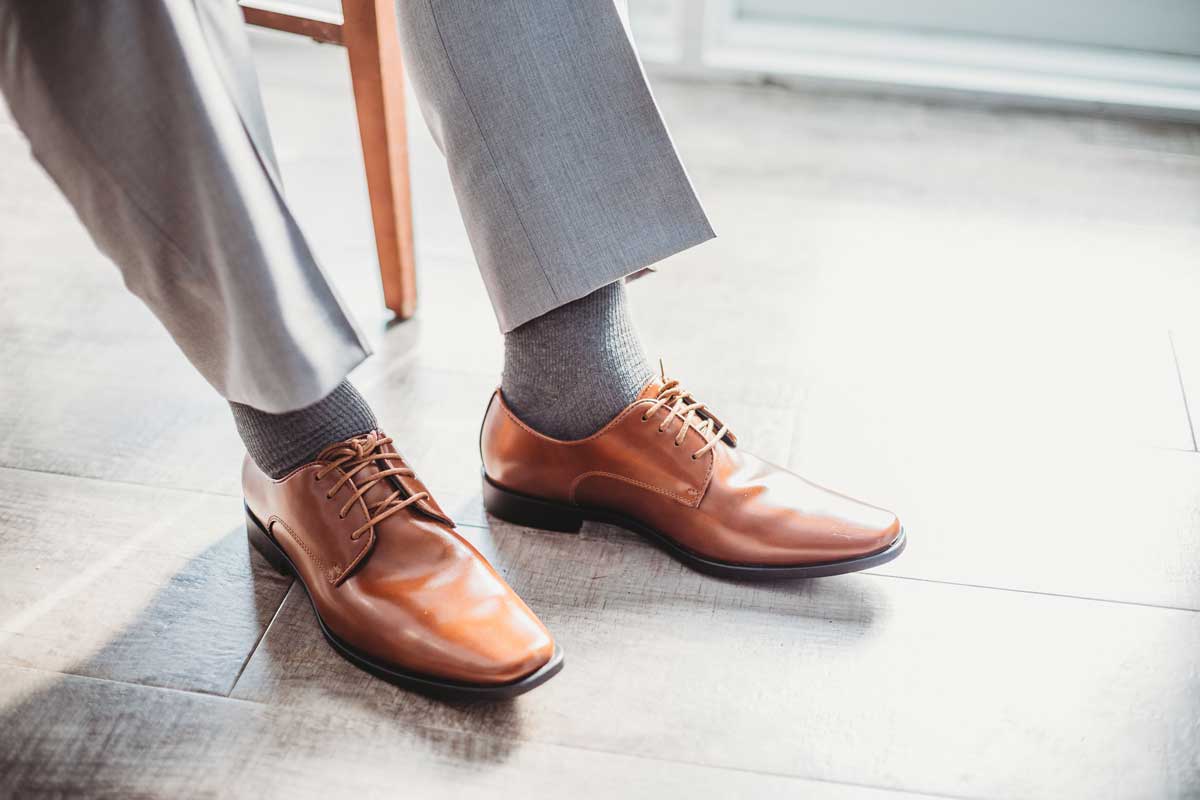In the world of footwear, the perennial debate surrounding the choice between real leather and synthetic alternatives continues to capture the attention of discerning consumers. The decision-making process goes beyond merely selecting a pair of shoes that matches your style; it involves a nuanced consideration of factors ranging from comfort and durability to ethical and environmental concerns. So, should you buy real leather shoes? Let’s embark on a comprehensive journey through the intricacies of this debate to help you arrive at an informed decision.
The Allure of Real Leather
Real leather has been synonymous with quality, luxury, and timeless style for centuries. The undeniable appeal of genuine leather encompasses several aspects that contribute to its enduring popularity:
- Durability: Perhaps one of the most lauded attributes of real leather is its durability. High-quality leather shoes, when cared for properly, have the potential to outlast their synthetic counterparts, making them a long-term investment.
- Comfort: Real leather possesses the unique ability to conform to the shape of your foot over time, providing a personalized and comfortable fit. The supple nature of leather contributes to an unmatched wearing experience.
- Breathability: Natural leather is inherently breathable, allowing for better air circulation around your feet. This quality is particularly advantageous in warmer climates, as it helps prevent moisture buildup and keeps your feet dry.
- Aesthetics: The aesthetic allure of real leather is undeniable. The richness of its texture, the luster that develops with wear, and the distinct patina created over time contribute to the unique charm of leather shoes.
The Ethical Quandary
Despite the undeniable allure of real leather, ethical considerations have spurred a growing movement towards exploring alternative options. Here are some ethical factors that may give you pause before opting for real leather:
- Environmental Impact: The leather industry has been associated with a range of environmental concerns, including deforestation, water pollution, and the significant carbon footprint of livestock farming. Additionally, the tanning process, a crucial step in leather production, often involves the use of harmful chemicals.
- Animal Welfare: A primary ethical concern with real leather is the treatment of animals in the leather industry. The process involves the slaughter of animals for their hides, raising questions about the ethical treatment of these creatures.
- Alternative Materials: Advances in technology have led to the development of high-quality synthetic materials that closely mimic the look and feel of real leather. Choosing these alternatives can be a more ethical choice for those concerned about the impact of traditional leather production.
Seeking a Middle Ground
For those caught in the conundrum between the allure of real leather and ethical considerations, there are pragmatic middle-ground options to explore:
- Second-hand or Vintage: Consider purchasing second-hand or vintage leather shoes. This not only reduces the demand for new leather but also adds a sustainable and unique touch to your wardrobe. Thrifting can be an ethical and fashionable solution.
- Ethically Sourced Leather: Some brands are taking steps to prioritize ethical and sustainable practices in their leather production. Look for companies that source leather responsibly, using by-products from the meat industry or opting for vegetable-tanned leather.
- Alternative Materials: Embrace the growing array of innovative materials such as plant-based leather, recycled materials, or synthetic alternatives that prioritize sustainability and ethical practices. These options can provide a guilt-free alternative without compromising on style or comfort.
Conclusion
In the quest to determine whether to buy real leather shoes, the decision is undoubtedly a deeply personal one, contingent upon individual values, lifestyle, and preferences. Striking a balance between the allure of real leather and ethical considerations is not only possible but increasingly accessible with the rise of sustainable practices in the fashion industry. Whether through exploring alternative materials, opting for ethically sourced leather, or embracing the charm of second-hand finds, making an informed choice empowers you to step out in style while aligning with your values. In the intricate dance between fashion and ethics, your choice of footwear becomes not just a style statement but a conscious step towards a more sustainable and compassionate future.








